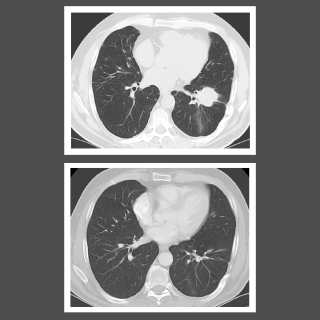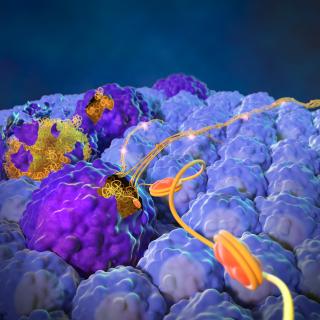News and Events
Celebrating CCR Careers: Alan Rein, Ph.D.
Alan Rein, Ph.D., is a known expert in the field of viral assembly, particularly in retroviruses like the human immunodeficiency virus (HIV). After an extensive career studying molecular mechanisms of retroviral replication and pathogenesis, he has announced his retirement.
Read MoreClinical trial researching CAR T-cell therapy for leukemia and lymphoma
A clinical trial led by Nirali N. Shah, M.D., M.H.Sc., Lasker Clinical Research Scholar in the Pediatric Oncology Branch, is researching CAR T-cell therapy for leukemias and lymphomas.
Read MoreElaine S. Jaffe receives FASEB Lifetime Achievement Award
Elaine S. Jaffe, M.D., NIH Distinguished Investigator in the Laboratory of Pathology, received the Lifetime Achievement Award from the Federation of American Societies for Experimental Biology (FASEB) for her pioneering work in the fields of hematology and hematopathology. The award recognizes her influential work in lymphoma diagnostics, as well as her devotion to education and mentorship.
Read MoreClinical trial researching therapy for aggressive gliomas
A clinical trial led by Sadhana Jackson, M.D., Adjunct Investigator in the Pediatric Oncology Branch, is researching a drug therapy for diffuse midline gliomas, a type of aggressive brain tumor.
Read MoreNIH study finds that immunotherapy substantially increases survival of people with lymphomatoid granulomatosis
Results from a clinical trial conducted by CCR researchers show that people with low-grade lymphomatoid granulomatosis who are treated with interferon-alpha, a type of immunotherapy, can live for decades after diagnosis. Lymphomatoid granulomatosis is a rare precancerous condition triggered by Epstein-Barr virus infection. The findings suggest that immunotherapy can prevent the progression of low-grade disease to high-grade disease, which has a poorer prognosis and can quickly turn into an aggressive and fatal B-cell lymphoma.
Read MoreClinical trial researching therapy for HIV-associated blood cancers
A clinical trial led by Kathryn A. Lurain, M.D., M.P.H., Assistant Research Physician in the HIV and AIDS Malignancies Branch, is researching a combination drug therapy for HIV-associated B-cell non-Hodgkin lymphomas.
Read MoreClinical trial researches combination drug therapy for B-cell lymphoma of the central nervous system
A clinical trial led by Mark Roschewski, M.D., Senior Clinician in the Lymphoid Malignancies Branch, is researching a therapy for B-cell lymphoma of the central nervous system.
Read MoreSignals released from dying cancer cells accelerate metastatic tumor growth
The final act of a dying cancer cell may be to spur the growth of other cancer cells.
Read MoreAligned Blog: Excerpts from my Chat with Dr. Carol Thiele for Women’s History Month
In honor of Women’s History Month, Shauna Clark, Ph.D., Center for Cancer Research (CCR) Diversity Advisor, sat down with Carol J. Thiele, Ph.D., Deputy Director and Senior Investigator in CCR. Dr. Thiele shares about her career, how inclusion for women in science has changed, and what we can do now to bring more women to the table.
Read MoreResearchers discover the multiple shapes of RNA, a boon for drug design
Using atomic force microscopy, CCR researchers directly observed individual RNA structures in cell-like conditions. They found that one primary RNA sequence can fold into many different conformations, which has important implications for the fundamental understanding of RNA and RNA-targeted drug design.
Read MoreNew Milestones publication now available
Every year, CCR makes remarkable contributions to the understanding, detection, treatment and prevention of cancer. This issue of our annual publication, Milestones, features 10 of our top scientific advances from the past year. These discoveries include advances in precision medicine — such as the identification of biomarkers that predict a patient’s response to immunotherapy or lead to health disparities — as well as research on a widely applicable cancer vaccine that could be employed in low-resource settings. Promising research on T cells provides insights into their resilience, behavior and tumor-reactivity with an eye toward developing better immunotherapies, and technological advances provide close-ups of key components of tumor growth and metastasis.
Read More









